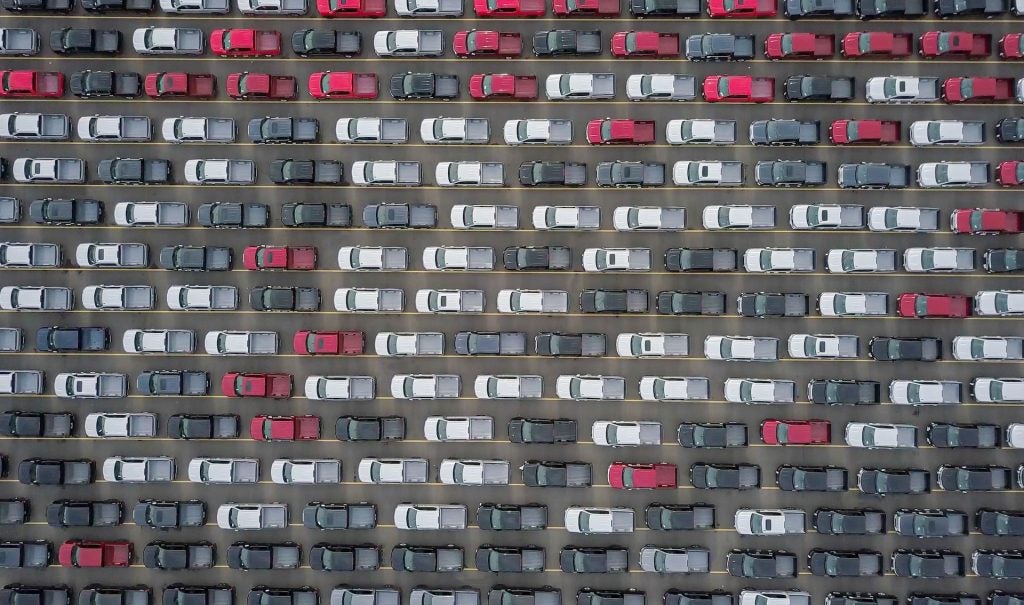possibilities of the ‘out of the box’strategies coming to the fore
in the current financial climate.
figures searching for anomalies and explanations. However, I feel
there may be some interesting little ‘out of the box issues’
emerging at present, offering lessors, fleet executives, dealers
and finance providers some food for thought – if not immediate
action.
Reports over the past couple of months or so
suggest that residual values, as measured by average prices at
auction, are looking healthy and buoyant. Interesting when one puts
that in the context of apparent collapsing confidence and poor new
car sales. Is there a logical explanation?
One issue may well be that dealers and their
intermediaries held back before Christmas on buying stock for the
spring season on the assumption that residuals might slip further,
although there appears to have been some levelling out in the
second half of 2008.
Equally, there may have been an assumption that
plenty of stock would be available. Logical – yes. But is there an
underlying strategic message that 2009-2010 will be years of the
used car?
If new cars will take time to recover and build up
again to satisfy natural demand, what might would-be buyers acquire
in their place?
Used cars replacing used cars; a sort of Gresham’s
Law of the quality of currency might be a parallel. A healthy used
car market is a prerequisite for a healthy new car market.
Force fed
How well do you really know your competitors?
Access the most comprehensive Company Profiles on the market, powered by GlobalData. Save hours of research. Gain competitive edge.

Thank you!
Your download email will arrive shortly
Not ready to buy yet? Download a free sample
We are confident about the unique quality of our Company Profiles. However, we want you to make the most beneficial decision for your business, so we offer a free sample that you can download by submitting the below form
By GlobalDataThe other side of the equation is the
challenge to dealers as to whether they have finance in place for
would-be used car buyers.
While there might be 2 million people out
of work, and a couple of million further with a concern about jobs,
that still leaves over 20 million people in employment, many of
whom may seek a replacement car over the coming months – and would
like the finance to go with it.
Some might claim that a drop in new car sales might
be a good sign, as the new car market has been force-fed for some
years and the natural demand for new cars in the United Kingdom is
lower than registrations would suggest.
Part of the excess ‘pseudo-sales’ might be
considered to have disappeared, although one hears regularly of
‘amazing bargains’ which, in turn, can skew the market as they are
sold through non-routine sources.
Could there even be an interesting situation
developing – a strategic paucity of used cars? Given for example,
in 2008-2010, a significant shortfall of new car sales,
cumulatively 1.5 million units. Even after we have deducted the
‘pseudo-sales’ noted previously, there may well be in two to three
years’ time a shortage of used car stock coming from replacement on
fleets and through the auctions.
The principles of supply and demand would suggest
that reduced used car stock will be sought aggressively and prices
could well rise. How significant that price hike a couple of years
ahead might be is open to conjecture. It may occur – or it may
not.
To return to the present day, anecdotal evidence
suggests that current lease rates have risen to help compensate for
the fall in residual values on units put on contract hire three to
four years ago.
Elsewhere, one reads of extending lease periods as
leasing companies seek to minimise future risks by being able to
depreciate to a more aggressive figure over a longer lease.
Tactical questions
There is a counter-argument which might
hold equal sway and which could appear to be very logical. On the
face of it, the shortage of new units going into leasing deals, or
being bought as new and entering their primary operating life, is
currently right down.
That means there could be a shortage of used cars
of a certain age at some point in future. Residuals of those units
should be very attractive. Would that mean that the
forward-thinking lessor might go for market share and reduce
current lease rates on new contracts?’
There are more risk management reasons not to
pursue such a radical strategy – but is it totally untenable?
Consider the laws of supply and demand and relate them to future
used vehicle price of units of a certain age.
As I wrote earlier, maybe I spend too much time
studying numbers and looking for trends – but do think about
it.
Professor Peter Cooke, KPMG Professor
of Automotive Management, University of Buckingham







